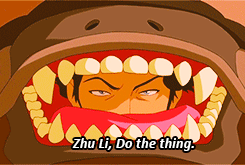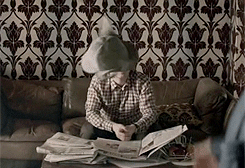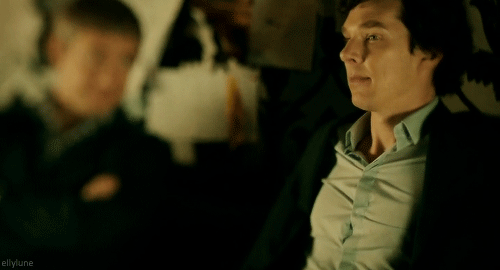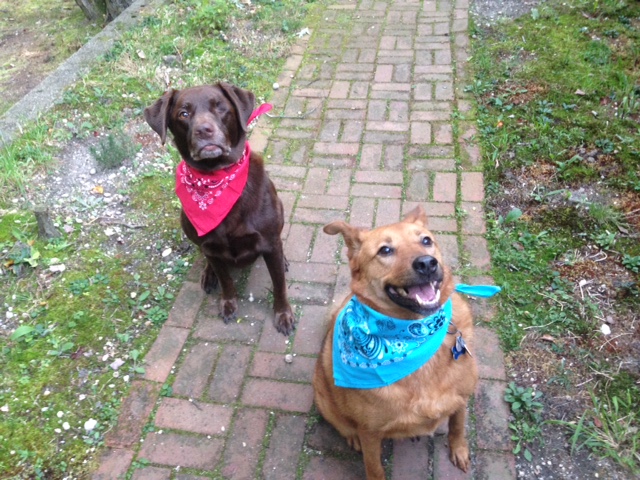News
NaNoWriMo Printable Tools
As I’ve mentioned before, I was selected as one of the Municipal Liaisons for National Novel Writing Month, so I’ll be coordinating events for the South Jersey region as well as my own library this year. I wanted to make some fun extras to motivate people to come to write-ins and finish their 50k words, so here they are: a NaNoBingo card with various challenges to complete, and a Frequent Writer Card that wrimos get stamped or stickered at events they attend.
If you need editable versions of any of these documents, let me know in the comments and I’ll get you an Illustrator (.ai) file. Please feel free to print these out and use them at your own events, though I’d prefer it if you could leave the credit line in.
The FWC currently has six spaces, which could be filled if a wrimo went to one write-in per week, plus the kickoff and TGIO parties. Regions with particularly ambitious wrimos may wish to edit to add more spots.
For prizes, I’m using my library’s button maker to make 1.5″ pinback buttons that are South Jersey-themed. Check your local library to see if they have a makerspace or equipment check out—you may be able to do the same!
Happy novel planning, wrimos! See you in November.
#PitchWars Interview with Sarah Glenn Marsh!
Hello, creatures! Sarah Glenn Marsh and I did a joint mentor/mentee interview as part of the whole #PitchWars shindig, and it’s now up for your reading pleasure on Brenda Drake’s blog. Thanks to Marnise Nicole for coordinating the interview, and to Brenda Drake for hosting!
#PitchWars Edits Begin!
I managed to break the back end of my site for a few days, so this post is long over due, but … I was selected as a 2015 #PitchWars mentee!
The evening of the announcement went something like this:
THANK YOU SO MUCH @SG_Marsh I’M SOBBING #PitchWars
— MK England (@GeektasticLib) September 2, 2015
Oh my god there I aaaaaammmmmmm *chugs more wine* *hyperventilates* #PitchWars https://t.co/746WRU2wtm
— MK England (@GeektasticLib) September 2, 2015
I’ve hit overstimulated toddler mode. put me to bed with a story & warm milk. except by a story I mean fanfic, and by warm milk I mean wine. — MK England (@GeektasticLib) September 2, 2015
And even a week later, it was still like this:
It’s official. I got my letter! I’m a wizard!!! #PitchWarsMadeMeAWizard @NKTraver pic.twitter.com/Zs9i6ZEtxN — Genevieve Angelique (@GenevieveArtel) September 9, 2015
But now it’s really sunk in, and I’ve been hard at work. My lovely mentor, the super smart and talented Sarah Glenn Marsh, was so on top of things that I got my edit letter and #PitchWars homework the day after the announcement was made. I had some assigned reading, some character mapping to do, and a ginormous revision outline to make. At first I was like … revision outline? Wow, that’s new, I always just dive in and fix things start to finish according to the track changes/comments in word. Except then I looked back at my old notes. Yes, apparently I DO make revision outlines, they’re just scattered across six thousand post-it notes, notebooks, and google docs. Ha. Sarah’s way is vastly superior, and it got me really pumped to see how everything would eventually fit together.
I thought I would be afraid of my edit letter but actually … it’s all fine. In this case, there were no major plot or structure changes (thanks to my amazing crit partners, no doubt), nor were there many cut requests—just lots of opportunities to give the reader more. More emotion, more characterization, more interaction, more physical presence, more setting detail. Character is what really makes or breaks a book for me, so I’m thrilled to be making these kinds of changes. I’m pretty easy-going about making changes anyway, so long as they fit the overall direction of the book, but I was still very pleased with the notes I received. I would love to have those revisions done by the end of September. #goals

In the meantime, I’ve also been brainstorming, plotting, and character arc-ing a new book to be drafted during NaNoWriMo this year. My dearest crit partner Lisen and I were named Municipal Liaisons for the South Jersey Region of NaNoWriMo, along with our fellow South Jersey writer Krista Magrowski, so we’re looking forward to an intense November! I don’t want to say too much about the new book yet, but I’m bouncing in my chair at the thought of getting to write it. Humor, campy sci-fi, and bad ass ladies, oh my!
How do you feel about revisions? Do you struggle to accept the things your critique partners tell you, or do you take it and run? What’s the toughest part of the revision process for you? Let’s commiserate together in the comments.
#PitchWars Mentee Bio
Okay, Imma do the thing!

This year I’m participating in #PitchWars, a contest for unpublished, un-agented writers with a complete and polished manuscript to share with the world. You can learn more about it here. Everyone who’s submitted is going mad waiting for September 2nd, the day we find out if we were selected by a mentor, so to distract ourselves a bunch of us are doing the #PimpMyBio Contestant Blog Hop. My official website bio is over here, but I think I can elaborate on that in gif form. Yessss.

I wasn’t even going to enter Pitch Wars. I had already started querying my manuscript, though I’d only sent a few, and figured I’d just continue with that. But the awesome Mara Fitzgerald (beta reader extraordinaire, #PitchWars alternate last year, and now agented YA writer) made lots of convincing noises and I decided to throw my hat in the ring.



I’ll just quote her: “Megan and I work well as crit partners because we are super awesome nerds outside of writing. We go to conventions together, have family game night together, drink beer around campfires together, go out to eat together, run a writing group together, buy the same car on the same day together. Basically we’re married. Just ask our husbands.” She’s fantastic and I love her and you can’t have her … but you can have her MG supernatural mystery manuscript!
I’m a YA librarian. I spend my day planning programs for teens, buying teen fic/nonfic/graphic novels/manga for the collection, coordinating our volunteer program, doing community outreach, helping kids of all ages learn to use computers, and much more behind-the-scenes boring stuff (budgeting, policy, security, etc.). I love my job and the teens I work with every day!

I’ve been an enormous nerd since forever and I love it. I’m a Ravenclaw. I play video and tabletop games (including tabletop RPGs), I cosplay, read and write fanfiction, go to conventions, consume anything sci-fi/fantasy … I do it all. My first-ever fandom was Farscape back in 1999, and it taught me what it meant to be part of a fan community. I love adventure, out-there humor, big damn heroes, fantastical powers—I want books that make me feel like I can take on the world. I also demand diversity, and am especially particular about gender and sexuality. I’m bi and genderqueer and 100% over narratives with nothing but straight white cis dudes in them.
 (and I swear BBC Sherlock is not one of those. the subtext is there. the truth will be revealed. trust.)
(and I swear BBC Sherlock is not one of those. the subtext is there. the truth will be revealed. trust.)
Some random favorite things: Guardians of the Galaxy, Young Avengers, Ms. Marvel, The Fifth Element, Avatar: The Last Airbender/Legend of Korra, Babylon 5, Firefly, Stargate: SG-1/Atlantis, Warehouse 13, and my Top 25 Books. I’ve been a Star Wars fan since forever. My parents’ first date was to see A New Hope in 1977. It’s in my blood.
And, uh. BBC Sherlock. Just in case that wasn’t obvious. We can’t talk about it. I have no chill.
Let’s end with two random facts. Because why not? I am a complete and utter tea addict. Seriously, I have a problem. I spend way too much money at Adagio Teas, especially in their Fandom Blends section. I drink hot tea year-round no matter the temperature, and typically down several cups per day. I have it bad.

I’m also a dog person. I have two dogs who are extremely smelly and irritating and adorable. Don’t even try to disagree.

So, that’s it. That’s me. My manuscript is a YA Space Opera called Space Academy Rejects, and I freaking love it, okay? Also, to all you #PitchWars mentors and organizers out there? I think you’re …

Check out the rest of the mentee bios here!
Collaborative Prompt Building
Summer has eaten me alive, as it always does to public librarians working in youth services, but I always make sure I have the time for my bimonthly writing group meetings. I’m the co-coordinator of my local group, along with crit partner extraordinaire Lisen Minetti, and we’ve been making a lot of changes lately to try to appeal to the needs of our local writers.
We’ve recently changed to an alternating structure where we do group critiques one meeting and prompt writing the next meeting. To keep it fun and engaging, I’ve designed two ways to build prompts with group input. These both work best in groups of 5-7 people, so larger groups should be broken down to allow everyone a chance to contribute and share their final story. For each exercise, either go around the table in order, or have participants draw scraps of paper with the various elements written on them.
Collaborative Build-a-Character
The group builds a character together that will feature in each person’s story. Each person contributes one of the following pieces of information about the character:
- Something they’re carrying
- Something they feel
- Someone they know
- A strong personality trait
- Something they did recently
- Something they said
- Wild card
Each individual writer then chooses the age and gender of their character and writes their story.
Collaborative Story Elements
Each person contributes one of the following story elements:
- Setting
- Main Character
- Character Trait
- Problem/Obstacle
- An Item
- An Emotion
- Wild Card
In both exercises, you can increase the number of wild card entries to account for more people. At our last prompt writing meeting we ended up with a terribly funny version of the prompt and seven very different takes on the same story elements. My sense of the group was that there was much more buy-in for the prompt because everyone contributed, versus being fed a pre-written prompt. We’re trying out the collaborative character build tonight, so we’ll see how it goes.
In the meantime, I’ll be doing my best to survive the last month of the summer reading program at the library. Keep me in your thoughts, and if you hear uncontrollable screaming, just tune it out.
MK’s Top 25 Books
(UPDATE: I’ve chosen to delete the recs in this post because it was from 2015 and I would now anti-recommend some of these books! Maybe one day I’ll write a new one.)
So, someone over on my fandom blog decided to take me up on my offer of personalized book recommendations for the summer. Except they are an omnivorous reader, so they just wanted my top five favorite books.
First of all, you should probably never ask that question of a librarian unless you have lots of time on your hands.
But here’s the problem with asking me specifically for my Top X Books of All Time: I either adore what I read, or I put it down. There’s rarely an in-between. There are SOME books that I forced myself through for the sake of school, and some that I enjoyed in the way you enjoy cotton candy dissolving into nothing. But the books that stick with me are the ones that really engage me intellectually or emotionally, or inspire the writer part of me stylistically. I do have some favorites that I enjoyed purely for a fun story, interesting world, and great characters, but that’s a separate list. This is the list of favorite books that affected me in some way. Most links will take you to Amazon, except in the cases where the book or story is available for free online somewhere. In no order whatsoever:
[DELETED]
BONUS short stories:
- Ten Rules for Being an Intergalactic Smuggler (the Successful Kind) by Holly Black in issue #52 of Lightspeed Magazine (free to read)
- Starfall by Saundra Miller in issue #52 of Lightspeed Magazine (free to read)
Yet More Bonus Selections under the cut. Seriously, just stop me. What books have affected or inspired you? Tell me in the comments!
Save Often and Loudly
Every writer’s worst nightmare is a dead computer.
Okay, maybe not every writer.
Every writer who writes on a computer.
Every writer who isn’t quite as diligent about backing up their work as they should be.
Every writer who has a slowly-declining laptop and knows the day is coming, but still doesn’t buy a new one because reasons.
Not gonna lie, y’all: I got lucky. When my laptop died last week, it had been about six weeks since I last backed up my writing. I could have lost six weeks’ worth of editing progress. Fortunately, I’m one of those people who builds her own computers and knows her way around the inside of the case. The problem didn’t affect the hard drive, so I removed it from the laptop, turned it into an external hard drive, hooked it up to the man creature’s computer, and held my breath.
Everything was there. Nothing at all was lost. I am one lucky writer.
I’ve since ordered a new laptop—a custom build from a website that specializes in gaming PCs, complete with gaudy LED backlighting on the keyboard and case that teenage MK would have drooled over and adult MK will be slightly embarrassed to be seen with. I’ve also been reconsidering my current backup method, which is basically to dump everything onto a flash drive once per week. Not ideal.
When I was an undergrad in college, my major was Digital Arts: Music, and our unofficial department motto was Save Often and Loudly. We would actually shout “save!” in the middle of the DA Lab every time we saved our work, which would prompt others to save as well. It instilled in me an almost manic need to save every few minutes, and save multiple versions along the way. I’d like to modify that now, though:
Save x3, Often and Loudly
Common wisdom these days is that you should back up your important documents in three different places. There are three primary ways to back up files:
- External physical media: Flash drives, external hard drives, burned CD/DVDs, etc. If you use two external methods, keep them stored in different locations (home and work).
- Cloud storage: Dropbox, Google Drive, one of the endless number of online automatic backup services.
- Physical copies: Printed out on acid-free archival quality paper.
I’m willing to bet very few people go the physical copy route. I certainly don’t. It’s an option, though, and you may want to consider it for your most important documents. I plan to keep up with my flash drive backup, but I’ll also be adding two cloud-based backups to my routine. I already use Google Drive for working on things when I can’t be at my usual computer, so I’ll use that for backing up my writing-related documents on a weekly basis. To give myself total protection for my whole computer (not just my writing) I’ll likely add an online backup service. The benefit is that I won’t have to remember; services like these automatically back up your data on a schedule you designate. Something like that would have saved me in the event that my hard drive had not still been functional after my laptop’s death. I haven’t decided on a particular service yet, but several friends have given me recommendations.
So, the moral of the story is DON’T BE ME. Don’t put off developing a backup plan. Don’t be lazy about your backups; or, if you want to be lazy, sign up for an automated service. Back up your data in multiple ways.
Save x3, Often and Loudly
So, my dear creatures, are you smarter than me? Do you have a backup system you swear by? Tell me in the comments!
Try Audible and Get Two Free Audiobooks — I’m a HUGE Audible addict. It’s the reason the memory on my phone is always full. Give it a try!
Fandom, pt. 2: Fanfic vs. Original Fic
 Last week I talked a bit (okay, a lot) about the synergy between my life as a writer of original works and my life in fandom. There’s more overlap and interplay between the two than you might think, and they’re both essential to my life and creative health. There are some differences between writing for fandom and writing original work, though, which is what I’d like to talk about today. Surprisingly, most of it has nothing to do with the writing or the stories themselves.
Last week I talked a bit (okay, a lot) about the synergy between my life as a writer of original works and my life in fandom. There’s more overlap and interplay between the two than you might think, and they’re both essential to my life and creative health. There are some differences between writing for fandom and writing original work, though, which is what I’d like to talk about today. Surprisingly, most of it has nothing to do with the writing or the stories themselves.
The obvious one
Let’s just get this out of the way right at the start. When you’re writing fanfic, of course you’re drawing on characters, worlds, and situations created by another writer. Some believe that this automatically demotes fanfic to a lesser art form. I would argue that creativity is born of limitations. How can I tell a new, interesting, creative story within the limitations provided? How can I make those characters my own? How can I get to the heart of what motivates them using only the information given to me through the original media? Also, anyone who believes there is no character development to be done in fanfiction has never written any. Place those characters in an alternate universe (AU) setting, and you’re honestly so far from the source material that it may as well be original fiction. If this is an impression you have, I encourage you to seek out some fanfic recommendation lists in a fandom that interests you and try reading some.
Shouting into the void
Writing original fiction can sometimes feel…a bit demoralizing, on the bad days. You put weeks, months, years into a project that may never see the light of day. It’s entirely possible that no one will read your book other than your critique partners. Even if you post on Wattpad or another such archive, it’s difficult to get noticed. Fanfiction certainly fulfills the need most writers feel to share their work with the world. Even poorly-received fanfic typically gets something in the way of attention and comments. It’s a little less lonely than writing original fiction. A little less like shouting into the void, hoping someone, somewhere will take notice and care about what you’ve written. If you write to create purely original worlds and people and love that process more than anything, then fanfic won’t entirely scratch the itch for you. If you write purely for the joy of sharing your work with others and have no other motives, though, fandom may be the most fulfilling place for you. I love, love the process of writing original fiction, and I even love the grind and stress of trying to make it in the professional publishing world. The joy of sharing a fanwork and being embraced by an enthusiastic and welcoming community is wholly different form of reward, though.
Will it float?
Similar to above, when you’re writing original fiction, you never know whether it will amount to anything. It may never gain readership. It may never sell to a publisher. Reading original fiction requires more investment from readers than reading fanfiction does; when you read fanfic, you already know that you’re signing up for characters and a world that you enjoy. Original fiction is much more hit-or-miss. You never know whether someone will ever read and enjoy your work. Fanfiction has a built-in audience, so there’s a good chance that you’ll at least find a small readership.
No money, no approval structure, less pressure
Fanfiction is free. Since the characters belong to someone else, fanfiction can never legally be sold (with few exceptions, noted below). Original fiction can be free, but typically the goal is to be published and earn money. Places like Wattpad are giving more of an audience for freely available original fiction these days, but for the same reasons noted in the previous section, it’s a bigger risk for readers to take. The fact that there’s no money to be made from fanfic also means there’s no approval structure or third-parties involved like there is with original fiction—no editors or agents to win over, or to work with you on making the story better. While the lack of oversight can result in falling back on tropes (which fandom admittedly loves) or laziness in editing, it’s also quite freeing. You can write with the sole intention of enjoying the process, or making your readers happy. Knowing that there’s no money, no sale, and no professional ramifications at the end can make the process of writing much less anxiety-ridden for some. It can automatically remove some of the barriers that keep people from getting their butts in the chair and putting the work in. This can be especially valuable for new writers.
Publishing options
For the most part fanfic is published solely online, with the occasional exception of fanzines. However, there’s a growing trend of editors seeking out highly-praised novel-length fics with huge audiences and then having the authors “file the serial numbers off”, or rewrite them to remove all traces of the original fandom while maintaining the elements of the fic that drew readers in to begin with. This is especially common with Alternate Universe fics, which are already so far removed from the original fandom as to be a mere hop away from original anyway. The classic example is 50 Shades of Gray, but as much as it’s a popular example, it’s not a very good one. Many, many others have been done to much better effect. While this practice is hotly debated, it’s still a potential path to publication through fandom, and is a way for writers to combine their fandom and original writing lives. After all, you spent months or years of your live writing that 120,000 word Sherlock/John Wild West AU*, at the end of which the characters bore little resemblance to their BBC counterparts thanks to the events of your story—so why not do the extra bit of work and get it ready for publication? For original fiction, you have so many options for publication: Get an agent and go for a Big 5 publisher, submit directly to mid-size or small presses, self-publish, and so on. There’s tons of competition, but the rewards are bigger.
* – I actually don’t know of a story meeting this particular description, but I’m sure it exists, and I do know of plenty of similar ones.
There are probably more differences, but those are the ones that jumped out at me as I started making my foray into writing fanfiction. What about you, creatures? Have you noticed any other differences between fanfic and original fic as either a reader or a writer? Let me know in the comments.
Resources and Further Reading:
The Organization for Transformative Works FAQ
Archive of our Own — A fanfiction archive run by the OTW
Fanlore — A wiki by and about fandom




